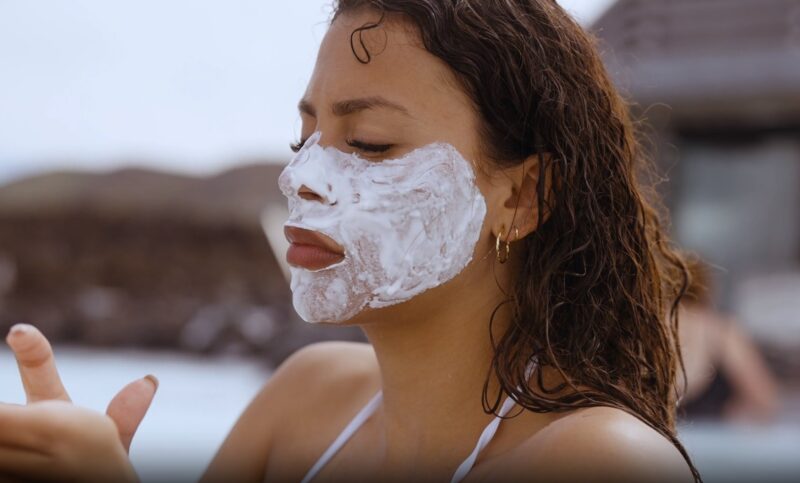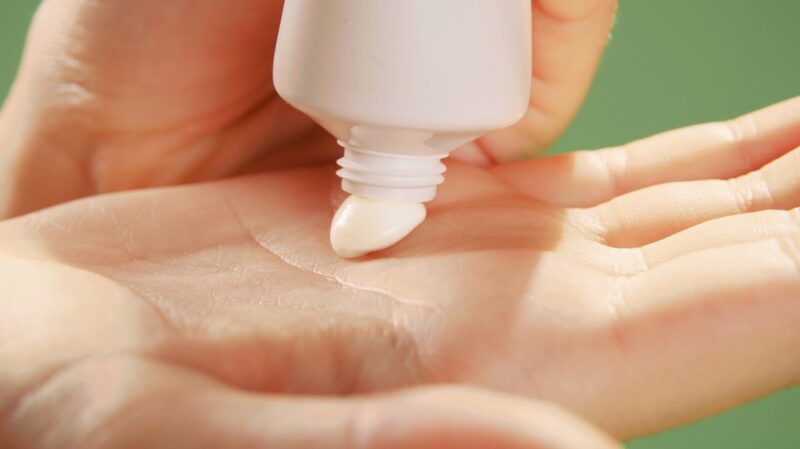Sunscreen is not just a summer accessory; it’s a crucial component of daily skin care, essential for protecting our skin from the harmful effects of the sun. Ultraviolet (UV) rays, invisible yet powerful, can cause sunburn, premature aging, and even skin cancer.
Understanding the different types of UV rays and their impact on the skin is the first step in recognizing the importance of sunscreen. This article will look into the nuances of different skin types, explore the variety of sunscreens available, and offer practical tips for effective sunscreen use.
Key Takeaways
- Sunscreen is a daily necessity: It protects against harmful UV rays, preventing sunburn, premature aging, and skin cancer, regardless of the weather or season.
- Choose according to skin type: Select a sunscreen formulation that matches your skin type (dry, oily, acne-prone, sensitive) for effective protection and comfort.
- Apply and reapply correctly: Use adequate amounts, cover all exposed areas, and reapply every two hours, or more frequently after swimming or sweating.
- Combine with other protections: Besides sunscreen, wear protective clothing, seek shade during peak hours, and use accessories like hats and sunglasses for comprehensive sun protection.
What Different Skin Types and Sunscreen Needs

Every individual’s skin has unique characteristics and challenges, necessitating a tailored approach to sunscreen selection:
Dry Skin
Individuals with dry skin should seek out sunscreens that contain moisturizing ingredients such as hyaluronic acid or glycerin, which can help to lock in moisture and keep the skin hydrated throughout the day. These hydrating sunscreens not only protect the skin from harmful UV rays but also counteract the drying effects of the sun, making them a dual-purpose product for daily use.
Those with dry skin need to avoid sunscreens that contain high levels of alcohol or other drying agents, as these can strip the skin of its natural oils, leading to increased dryness and irritation.
Oily Skin

People with oily skin should opt for lightweight, oil-free sunscreen formulations to avoid adding extra shine or greasiness to their complexion. Gel-based or water-based sunscreens are excellent choices because they absorb the skin quickly, minimize the appearance of oiliness, and help maintain a matte finish throughout the day.
It’s essential to select non-comedogenic sunscreens that won’t clog pores, thereby preventing the formation of new breakouts and managing existing skin oil levels effectively.
Acne-Prone Skin
Individuals dealing with acne-prone skin need to be particularly selective about their sunscreen, choosing non-comedogenic options that won’t block pores or exacerbate acne. Sunscreens containing active ingredients such as salicylic acid or niacinamide can offer additional benefits by helping to reduce inflammation and manage acne breakouts while providing necessary UV protection.
Those with acne-prone skin need to apply sunscreen regularly, as sun exposure can lead to post-inflammatory hyperpigmentation and worsen the appearance of acne scars.
Sensitive Skin
Those with sensitive skin should prioritize gentle, fragrance-free sunscreen formulations to minimize the risk of irritation and allergic reactions. Mineral sunscreens containing titanium dioxide or zinc oxide are less likely to irritate sensitive skin because they sit on the surface of the skin and reflect UV rays, rather than being absorbed into the skin.
Additionally, sensitive skin types should look for sunscreens with minimal ingredients and without added fragrances or essential oils to ensure that their skin remains calm and protected from the sun’s rays.
How Do Different Types of Sunscreen Work?
Sunscreen formulations can be broadly categorized into two types: physical (mineral) and chemical, each employing different mechanisms to protect the skin from UV radiation:
- Physical Sunscreens: These create a barrier on the skin’s surface, reflecting UV rays away. Ingredients such as zinc oxide and titanium dioxide are common, offering protection without penetrating the skin, making them ideal for sensitive or reactive skin types. However, they can sometimes leave a white residue, which may be less desirable for darker skin tones.
- Chemical Sunscreens: These absorb into the skin and then absorb UV rays, converting them into heat and releasing them from the body. Active ingredients like avobenzone and octinoxate are typical in these formulations. They tend to be more lightweight and less noticeable on the skin but may cause irritation or allergic reactions in sensitive individuals.
Selecting a “broad-spectrum” sunscreen is crucial as it ensures protection against both UVA (aging) and UVB (burning) rays. An SPF of at least 30 is recommended for effective protection.
How to Use Sunscreen Effectively?

While choosing the right sunscreen is essential, proper application and reapplication are key to ensuring comprehensive skin protection:
- Apply Generously: Underapplication can significantly reduce the effectiveness of sunscreen. Aim for one ounce (approximately a shot glass full) for the body and a nickel-sized amount for the face, ensuring all exposed skin is covered.
- Reapply Regularly: Sunscreen should be reapplied every two hours, or more frequently after swimming, sweating, or towel drying, to maintain optimal protection.
- Complement with Other Measures: Relying solely on sunscreen is insufficient for complete sun protection. Wear protective clothing, seek shade during peak sun hours (10 a.m. to 4 p.m.), and utilize accessories like hats and sunglasses for additional defense.
- Year-Round Use: UV exposure occurs daily, regardless of weather conditions or seasons. Implementing sunscreen into your daily routine, even on cloudy or cold days, ensures consistent protection against UV radiation.
What Is The Importance of SPF for All Skin Types?

Sunscreen is essential for all individuals, regardless of skin color, as UV radiation poses risks of sunburn, premature aging, and skin cancer to everyone. While melanin provides some natural protection, it’s not enough to guard completely against harmful rays, making SPF crucial for comprehensive skin protection.
Tailoring SPF to Skin Tone
The Fitzpatrick Scale helps categorize skin types from very fair to dark brown based on their reaction to sun exposure and melanin content, guiding appropriate SPF selection. Very fair skin types (Type I) require high SPF levels and frequent reapplication, while darker skin types (Type VI), though at lower risk, still need SPF 30+ for effective protection against long-term sun damage.
Beyond Skin Type: Additional Factors
- Sensitive Skin and Conditions: Individuals with sensitive skin or conditions like eczema should choose mineral sunscreens with higher SPF levels to minimize irritation and maximize protection.
- Medication Influence: Certain medications can heighten sun sensitivity, necessitating a higher SPF to prevent adverse reactions.
- Activity Considerations: For those engaged in prolonged outdoor or water activities, choosing a water-resistant sunscreen and reapplying frequently is essential, regardless of skin type.
FAQ
What is the difference between UVA and UVB rays, and why is it important to protect against both?
UVA rays penetrate deep into the skin, leading to aging and long-term damage, while UVB rays primarily affect the surface, causing sunburn. Broad-spectrum sunscreens protect against both types, preventing sunburn, premature aging, and skin cancer.
How often should sunscreen be reapplied during continuous outdoor activity, and why?
Sunscreen should be reapplied every two hours during continuous outdoor activities, even on cloudy days, to ensure consistent protection as it can wear off due to sweat, water, and friction.
Can sunscreen expire, and what are the signs?
Yes, sunscreen can expire, losing its effectiveness. Signs include changes in texture, color, or smell. Always check the expiration date and store in a cool, dry place to maintain its efficacy.
Is sunscreen necessary for all skin types and tones, and why?
Yes, sunscreen is necessary for all skin types and tones because UV radiation affects everyone, regardless of skin color. While darker skin may have some natural protection, it is still susceptible to sun damage and skin cancer.
How can one choose the right SPF number, and what does it represent?
The SPF number represents the level of protection against UVB rays; for example, SPF 30 blocks about 97% of UVB rays. Higher SPF numbers offer more protection, but it’s crucial to find a balance between sufficient protection and personal needs.
How does sunscreen impact Vitamin D synthesis in the skin?
While sunscreen can reduce the skin’s production of vitamin D by blocking UVB rays, it doesn’t completely prevent it. Short, daily exposures to the sun (about 5-15 minutes) without sunscreen are often sufficient for vitamin D synthesis. For those concerned about vitamin D levels, dietary sources and supplements are recommended alternatives.
Summary
Choosing the right sunscreen is a personalized process that depends on your skin type, lifestyle, and preferences. Remember, the best sunscreen is the one you will use consistently.
Experiment with different formulas to find one that fits your skin and encourages regular use. Consult with a dermatologist if you have specific concerns or conditions.
By integrating sunscreen into your daily routine, you’re not just protecting your skin; you’re investing in your long-term health and well-being.

